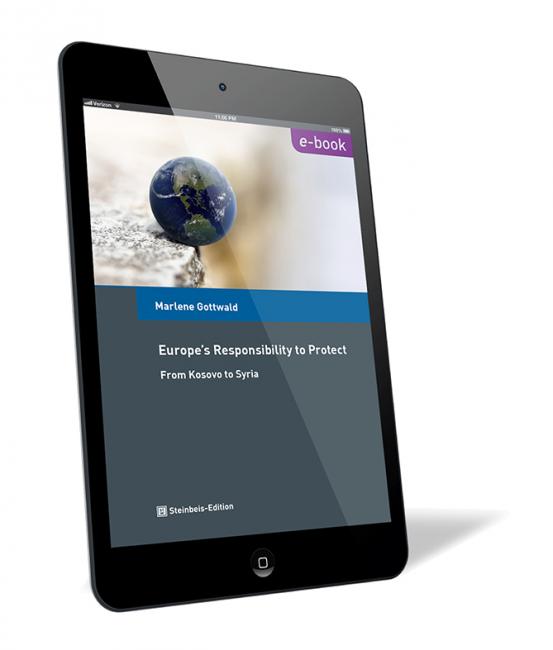Blick ins Buch | Cover als JPEG
With lessons learned from the 1999 Kosovo intervention as a point of departure, this thesis addresses the question of whether the development of the Responsibility to Protect (RtoP) doctrine and the Common Security and Defence Policy (CSDP) actually made a difference in determining whether and how Europe responded to subsequent mass atrocities in its neighbourhood. Viewing the RtoP as an emerging international norm, a social constructivist framework is applied to explore the influence of norms on European foreign policy-making. It is argued that even an emerging international norm can be influential if it is considered a legitimate behavioural claim. The influence of the RtoP will be assessed by gauging the extent to which it is distinctively used to justify foreign policy decisions and to communicate the basis for those choices to a wider audience. The development of the RtoP and the CSDP from 1999-2011 in theory and practice paves the way for an in-depth case study analysis. Focusing on the UN, the EU as well as French, German and British discourses, the question of whether the RtoP has actually made a difference will be answered by scrutinizing European responses to the Libyan crisis (March – October 2011) and the Syrian crisis (March 2011 – September 2013). Using methods of process-tracing and discourse analysis, 500 official EU, French, German and British documents have been analysed to assess the influence of the RtoP on Europe’s handling of violent conflicts in its neighbourhood. Ultimately, light is shed not only on the relevance of the RtoP for Europe but also on the role of the EU as a security actor in its neighbourhood.
Die Publikation ist auch als Print-Ausgabe erhältlich.
Dr. Marlene Gottwald promovierte im Rahmen des von der EU-geförderten Marie Curie Initial Training Network EXACT (EU External Action) im Fach Politikwissenschaften an der University of Edinburgh und der Universität zu Köln (‚co-tutelle‘). Als Wissenschaftliche Mitarbeiterin am Finnish Institute of International Affairs (FIIA) in Helsinki, der Trans European Policy Studies Association (TEPSA) in Brüssel sowie an den Universitäten Köln und Edinburgh beschäftigte sie sich in Forschung und Lehre mit Fragestellungen der Europäischen Außenpolitik und Internationalen Beziehungen. Bei der Steinbeis GmbH & Co. KG war sie als Projektleiterin im Bereich des wettbewerblichen Wissens- und Technologietransfers tätig und für Kooperationen mit Hochschulen und Universitäten verantwortlich. Ihre Forschungsschwerpunkte sind die gesellschaftlichen Auswirkungen der Digitalisierung, Wissenschaftskommunikation mit Fokus auf Technologie/ Digitalisierung sowie der Einfluss der Digitalisierung auf Internationale Beziehungen. Als Senior Research Fellow am Ferdinand-Steinbeis-Institut leitet sie das Projekt #techourfuture Technologie*Begreifen sowie den Forschungsbereich Digitalisierung und Gesellschaft. // Stand: 04/2020

